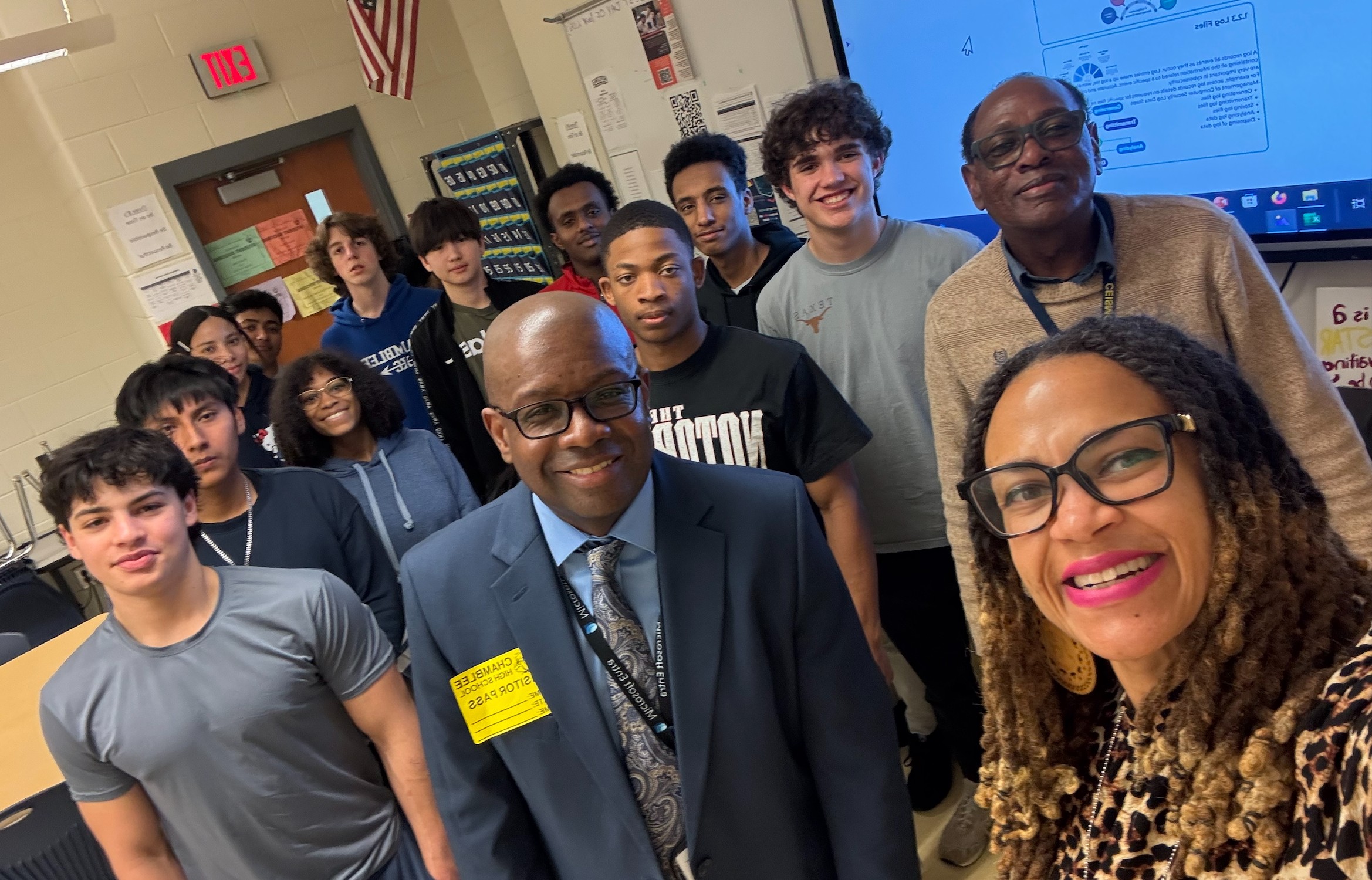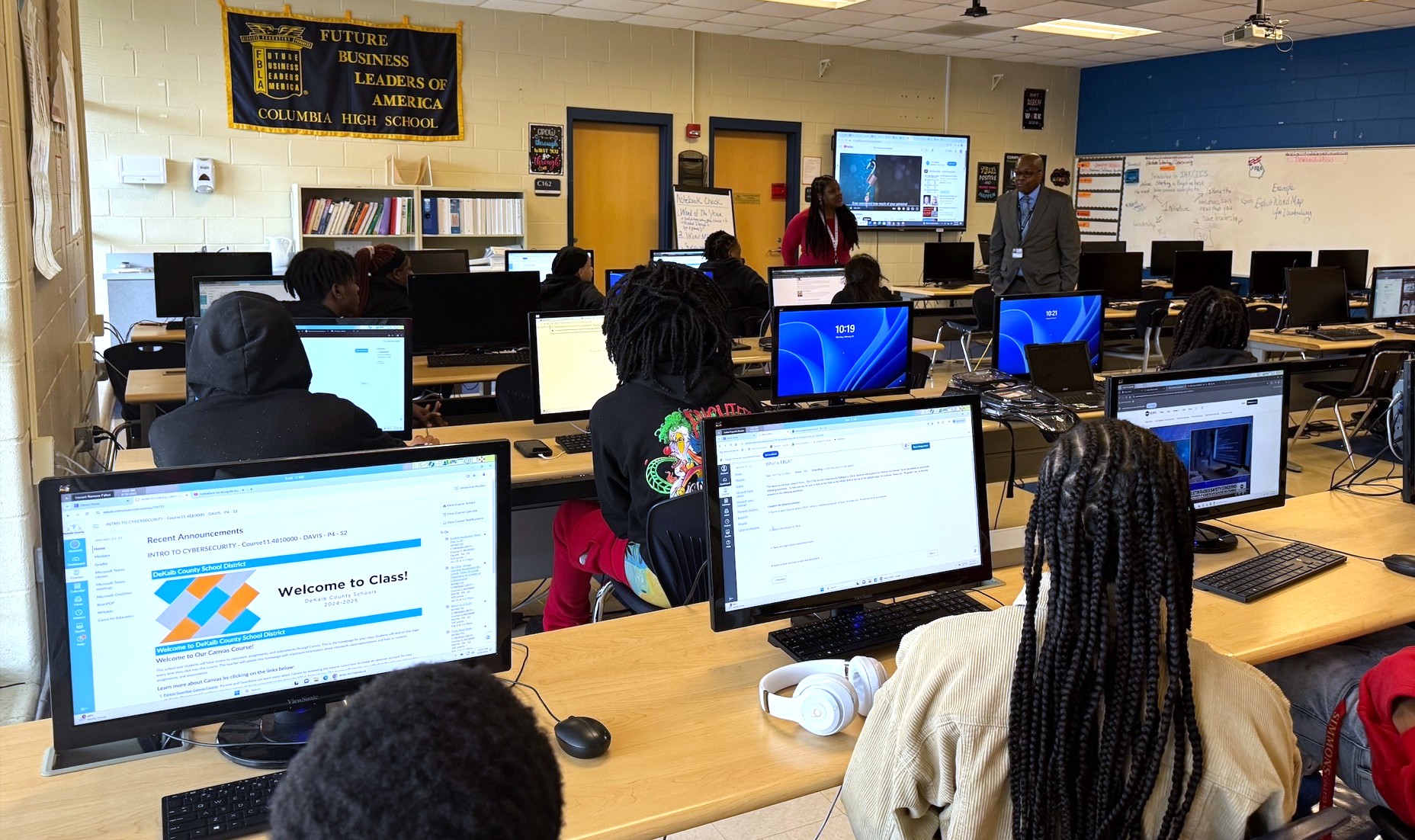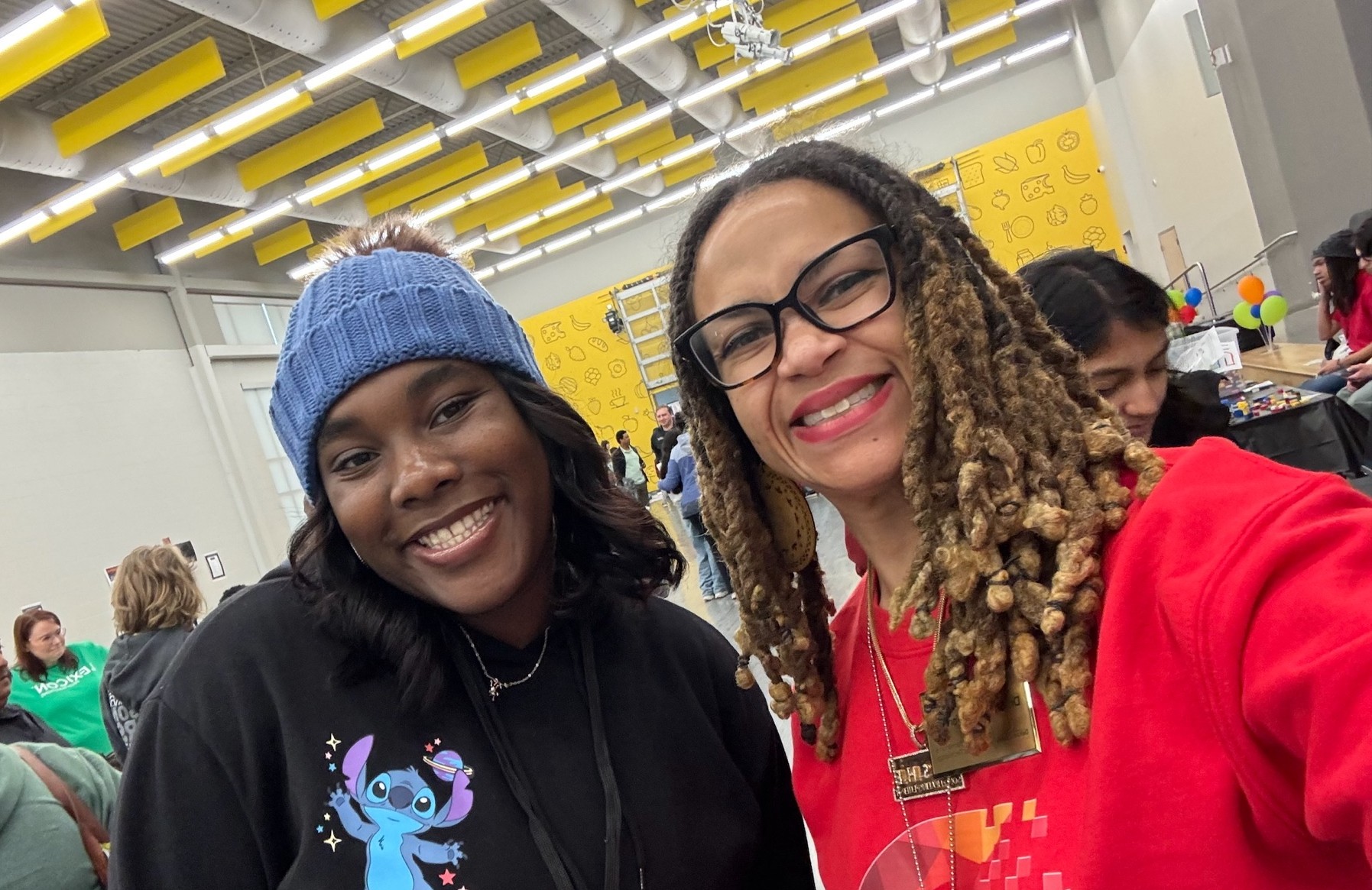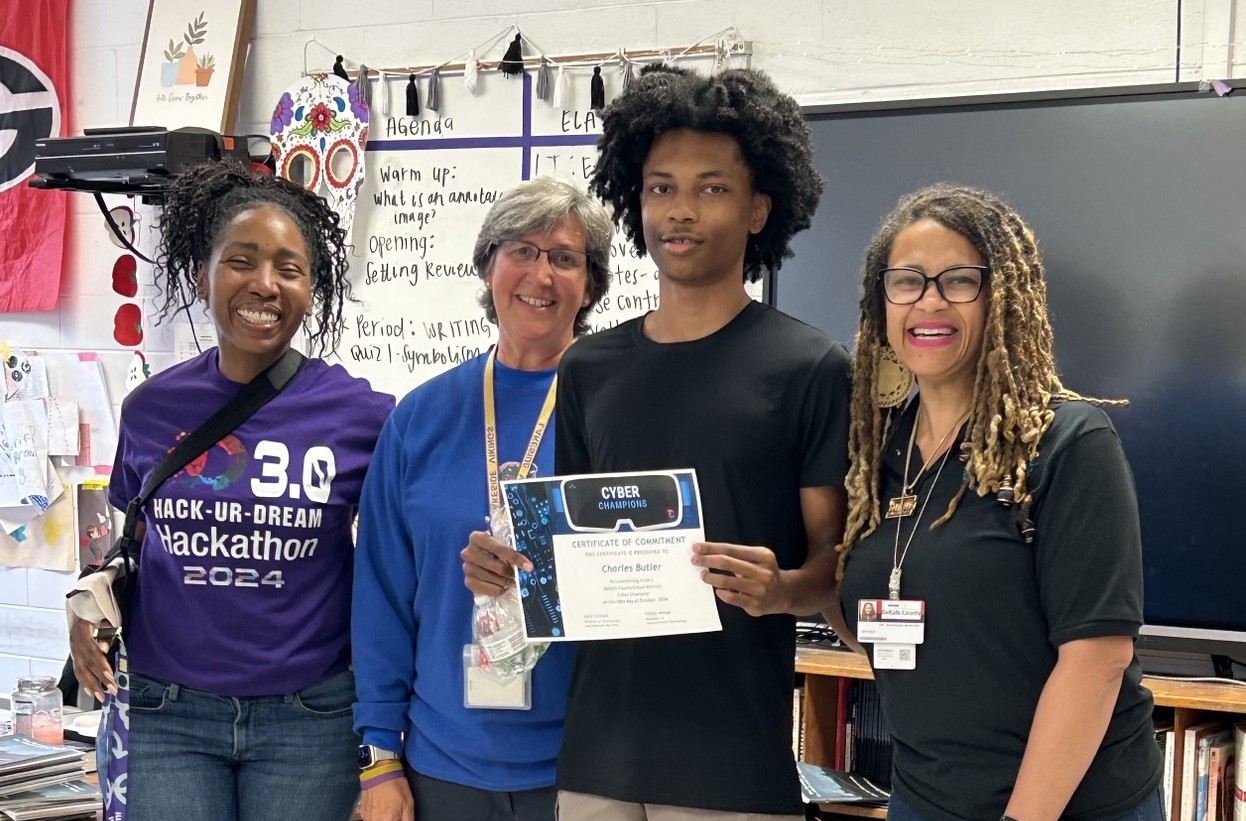5 Tips To Launching A Cyber Champions Program
INNOVATIVE LEADER AWARD - Dr. Shanique Worthey discusses her impressive Cyber Champions program and shares how to launch a similar digital citizenship program in your district.

When Dr. Shanique Worthey launched her Cyber Champions program, she had no idea just how many students would jump at the chance to participate in the digital citizenship program.
“As we began collaborating last summer for the Cyber Champions, we expected a group of 25 or so,” says Worthey, Manager of Security Awareness and Engagement for Georgia’s DeKalb County School District, which serves 92,066 students across 137 schools. “Instead, we had about 100 students immediately apply to be a part of this initiative to virtually meet monthly to talk about different topics such as cybersecurity, artificial intelligence, and being a good digital citizen.”
For her efforts, Worthey was recently recognized as Innovative Educational Technology Specialist at the Southeast Regional Leadership Summit as part of the Tech & Learning’s Innovative Leader Awards.
Worthey discusses her impressive Cyber Champions program and shares five tips to launch a similar digital citizenship program in your district.
A Winning Gameplan for Cyber Champions

Worthey launched Cyber Champions with Eric Logan, Director of Information Security, but its immediate success made the duo realize they would need reinforcements to achieve their goal.
”The numbers were definitely overwhelming,” Worthey says, adding she was thrilled when a dozen teachers volunteered their time to help. “We recruited teachers to help us facilitate virtual meetings and run small breakout rooms to dive deep into the lesson shared in the monthly meeting. We’re hoping to pay them in a future cohort, but we're not there yet. So at the moment we are relying on their enthusiasm and willingness to participate in such an initiative.”
With such a wide age range, one common digital topic was presented each time with breakout rooms providing space to scale participation by grade level.
“When I first started out, I was tweaking plans from Microsoft and Common Sense Media about AI and cybersecurity,” Worthey says. “I created a template for the teachers to align to the grade level of their group of four to six students. I wanted to celebrate, not micromanage our volunteers, so I gave them the autonomy to use their expertise in their respective fields to help students understand.”
Building Leaders—The Domino Effect

Empowering and growing leaders extended beyond the volunteer teachers. Student participants not only put in the time to learn the technology-based lessons, they actively teach others in their school community what they learn.
“They're definitely our ambassadors,” says Worthey. “They're our champions for cybersecurity and AI. They act as a liaison between us and the other students. After the monthly meeting, students are required to create their own presentation based on the information they learned with us and share it with their classmates. That’s why we call them our Cyber Champions.”
Strength in numbers proves true at DeKalb. Worthey’s team reaches out not only to peers and classmates, but shares lessons with parents, teachers, the local community and beyond.
“Some of the students may get selected to present at the PTA or during their school’s morning announcements. Some participate in monthly tech cafes for the community, where they get to present to parents and visitors,” says Worthey. “Many Cyber Champions compete in our tech fair competition, placing in their respective categories. They are highlighted outside of the school community—one was even a participant in the student panel for Tech & Learning.”
Keeping the monthly message relatable and easy to digest helps kids pass the information on to others, a proven technique for ensuring lessons land and are remembered.
“We talk about topics like privacy and reading privacy statements,” says Worthey. “We talk about using artificial intelligence—who's behind those chatbots? Ask teachers if now is an appropriate time to use AI and use it as a brainstorming partner, not for answers. We theme it to what is happening for the kids to make it relevant, so over the holidays we discussed how to shop safely online.”
Worthey promotes the continuation and expansion of the program by using the champions’ own words.
“As part of our closeout ceremony, I asked our students to create a 30-60 second video to help recruit other students,” she says. “I'm definitely enjoying watching their videos, to learn their feedback and what their thoughts are on the program.”

5 Tips to Launching Cyber Champions in your District
Worthey and Logan share tips on developing a successful Cyber Champions program to boost digital citizenship and understanding.
1. Offer Opportunities to Hone Soft Skills
Soft skills such as communication, collaboration, and presenting in front of an audience creates opportunities for students to shine and really be leaders in the field. By working on those soft skills, students will be more comfortable when looking for jobs, interviewing for college, presenting at competitions, and giving classroom reports.
2. Build Model Students
Breaking information into smaller, digestible pieces helps students easily share lessons with peers in the classroom. “When we discuss using AI in an ethical and responsible way, students can model proper behavior when using the tech and show others how to be a good digital citizen,” says Worthey.
3. Bring in Subject Matter Experts
Worthey has reached out to the local FBI office and shared with them about the Cyber Champions program, explaining that they were looking for ways to partner with the FBI to bring strategies for online security awareness to the table to share with the students.
4. Create Career Pathway Awareness
“A lot of our vendors, such as Microsoft, Google, Fortnite, and others have a lot of opportunities for training students interested in careers in cyber security and IT,” says Worthey. “It's a level of experience and knowledge that they have access to through Cyber Champions, so once they go to college or into the workforce, they are already a step ahead.”
5. Offer Volunteers a Choice of Recognition
“I created a form asking teacher-volunteers how they’d like to be rewarded for their time,” says Worthey. “Some like personal recognition — a mention at year-end celebration, some wanted items boasting the Cyber Champions logo, some preferred a district-wide news flash, while others would like a gift card.”
The Tools They Use
- Microsoft Teams
- Canva
- Common Sense Media
- Fortnight
Tools and ideas to transform education. Sign up below.
Sascha has nearly two decades of experience as a freelance journalist writing for national magazines, including The Washington Post, LA Times, Christian Science Monitor, National Geographic Traveler, and others. She writes about education, travel and culinary topics.

